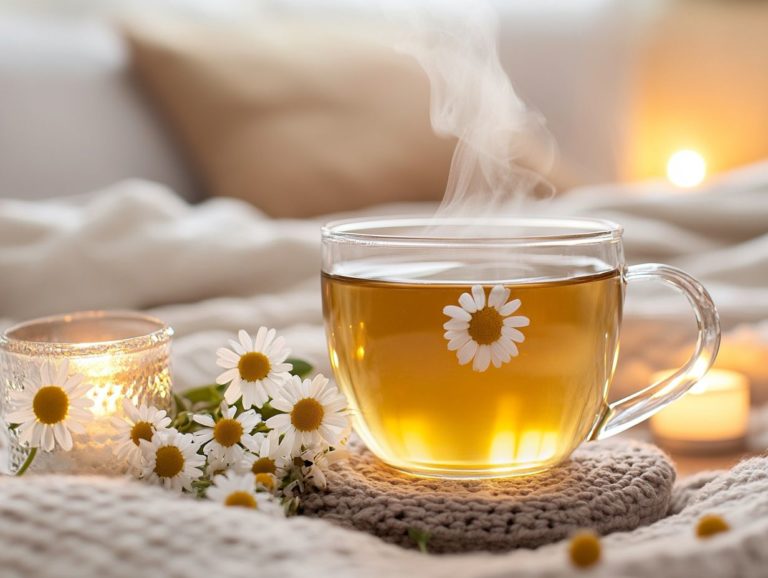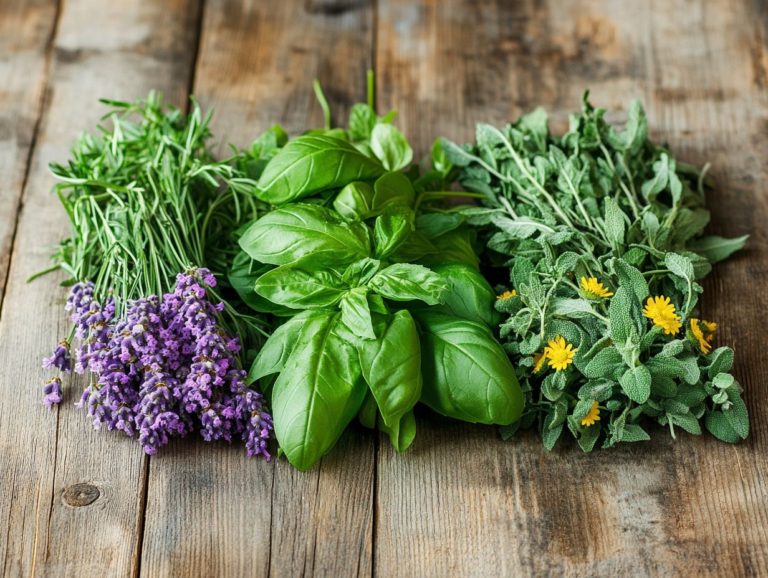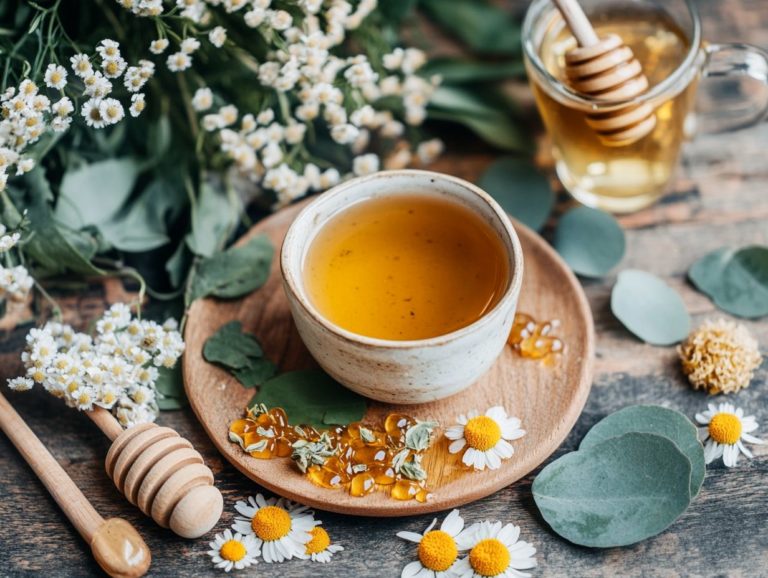Herbs vs. Pharmaceuticals: A Comparison
In today’s health-conscious world, you may find yourself weighing the benefits of herbs against traditional pharmaceuticals.
Both options have unique advantages and drawbacks, making it essential to understand their roles in your wellness journey. This article delves into the pros and cons of using herbs and pharmaceuticals, highlighting their respective benefits and risks.
It also emphasizes the importance of combining these remedies safely. Whether you’re considering alternative treatments or looking to enhance your current regimen, this guide will help you discover exciting options for better health!
Contents
Key Takeaways:
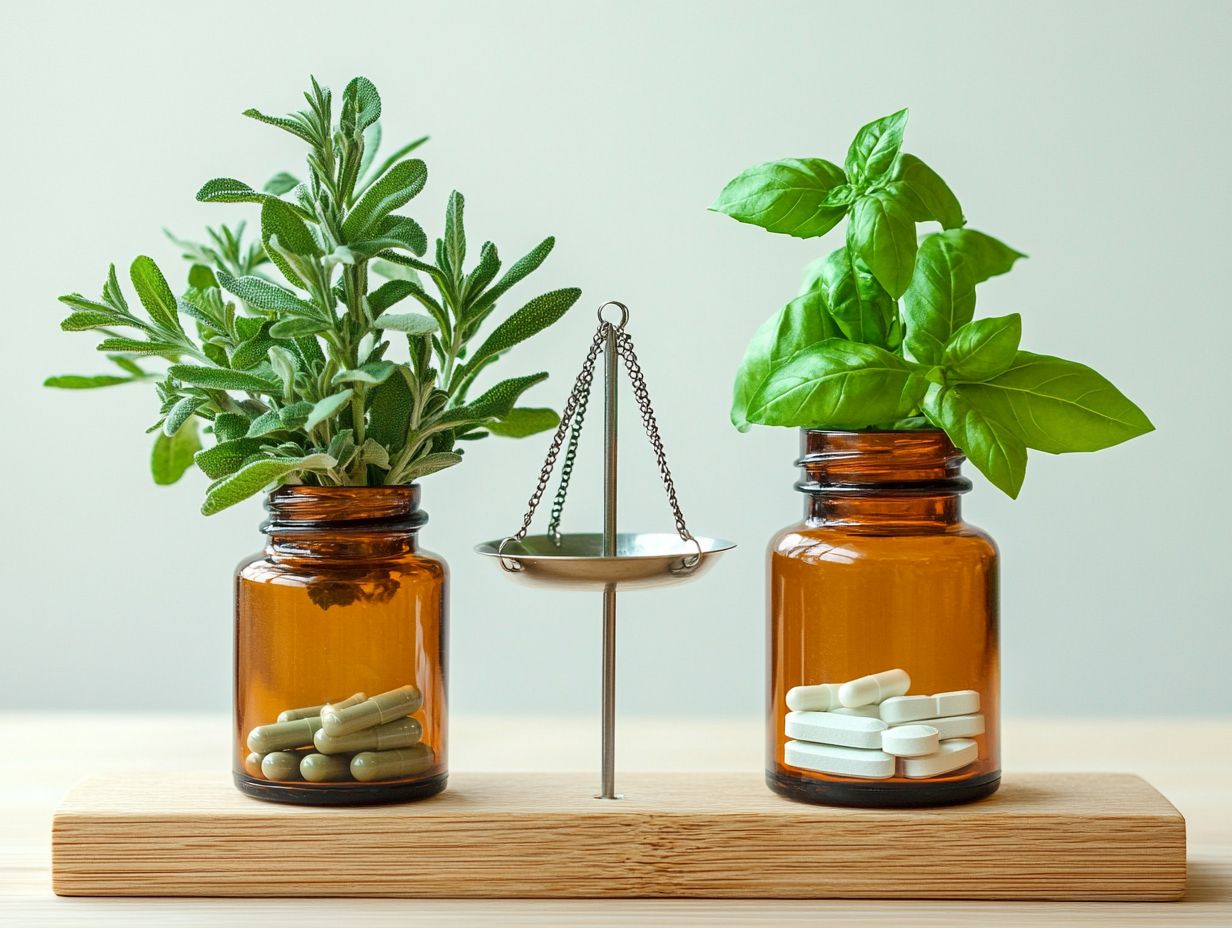
- Herbs are great for natural healing but have their limits.
- Pharmaceuticals offer effective treatment but come with potential risks and side effects.
- Key differences include how they work, side effects, and availability. Herbs act holistically, while pharmaceuticals target specific symptoms.
- When deciding between herbs and pharmaceuticals, consider the severity of the condition, individual health history, and potential interactions.
- Combining both approaches may yield optimal results.
Defining Herbs and Pharmaceuticals
Herbs and pharmaceuticals represent two different approaches in modern healthcare. Herbal medicine focuses on natural remedies derived from plants, while pharmaceuticals are synthetic drugs designed for specific therapeutic effects.
Understanding this distinction is crucial for recognizing the diverse options available in healthcare. Both herbal and pharmaceutical products can play significant roles in treating various ailments, such as cardiovascular diseases and cancer.
By integrating herbal remedies into a holistic therapy framework, you can gain a more comprehensive understanding of patient health, which includes emotional, mental, and spiritual well-being.
The historical significance of herbal practices, especially within systems like Traditional Chinese Medicine, underscores the trust placed in natural medicines. Many find comfort in the familiar properties of herbs, used for centuries to support overall health and address conditions like anxiety and inflammation.
On the other hand, pharmaceuticals are crafted for precision and designed to elicit specific biological responses quickly. While some view synthetic drugs as more reliable, others support the potential synergy between herbal remedies and pharmaceuticals, suggesting that nature and science can complement each other.
By exploring both options, healthcare providers can develop treatment plans that respect patient preferences while optimizing therapeutic outcomes.
Pros and Cons of Using Herbs
Utilizing herbs in healthcare practices presents a compelling array of benefits and limitations that can greatly influence patient outcomes and therapeutic effectiveness.
The advantages of herbal remedies often include fewer adverse effects compared to synthetic pharmaceuticals, positioning them as appealing alternatives for those seeking natural solutions for various health issues.
However, it s crucial to consider factors like quality control and herbal safety. One must also be aware of the potential health risks arising from improper use or insufficient patient education.
For further guidance, always consult a healthcare provider about using herbs and pharmaceuticals together.
Benefits and Limitations
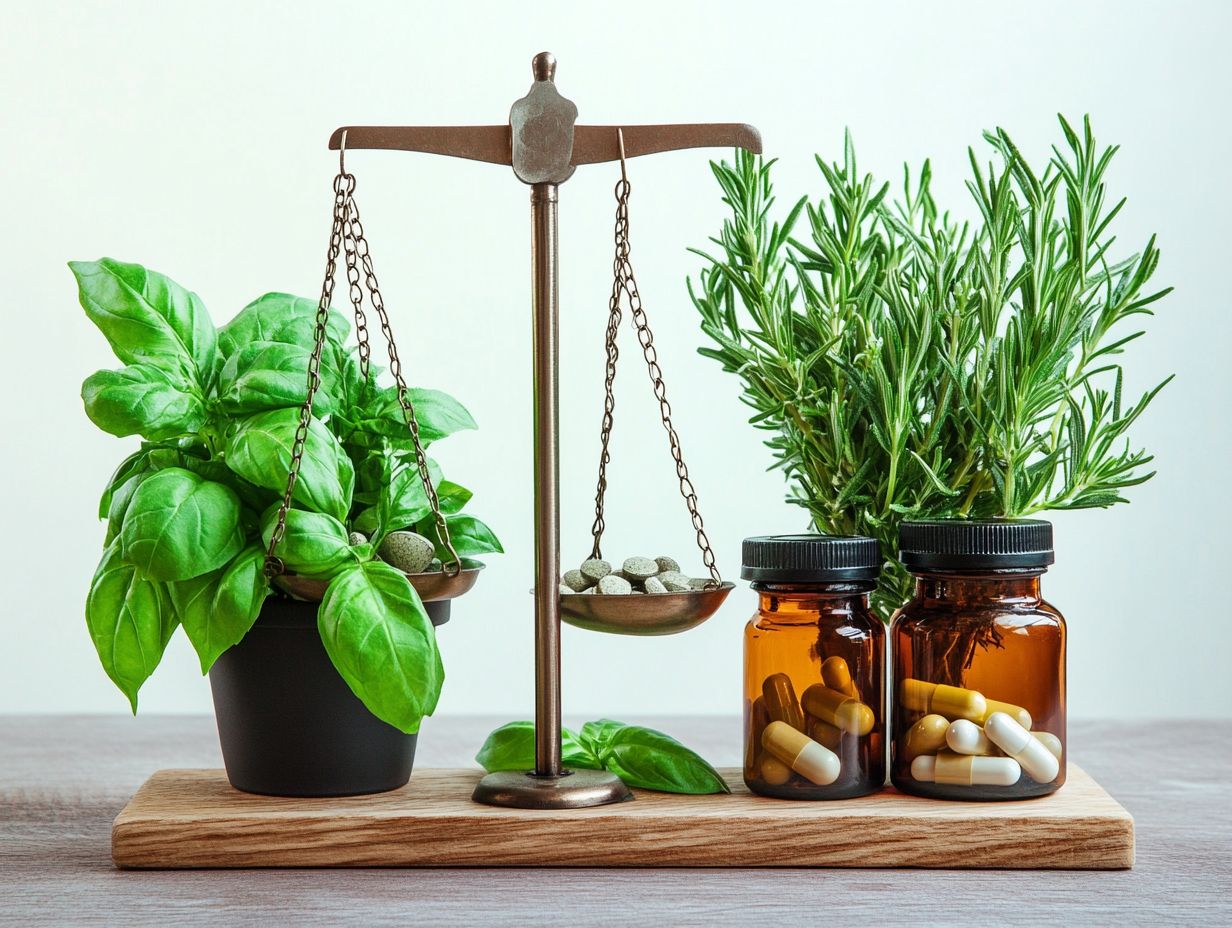
The benefits of herbal remedies often present natural healing solutions that support holistic therapy. However, limitations may arise from individual differences in response and potential toxicity concerns.
These natural medicines can effectively address emotional, mental, and spiritual health issues, promoting your overall well-being and resilience.
For example, many individuals discover that certain herbal formulations, like chamomile tea or St. John s Wort, can alleviate anxiety and depression with fewer side effects than traditional pharmaceuticals. This approach not only enhances your emotional balance but may also lead to improvements in physical conditions such as inflammation and digestive issues.
It s crucial to recognize that efficacy can vary significantly from one person to another due to genetic differences and existing health conditions, which may increase the risk of adverse effects. The lack of regulation in the herbal supplement industry raises concerns about quality and safety. This makes it essential for you to approach herbal remedies with caution.
Pros and Cons of Using Pharmaceuticals
Pharmaceutical drugs offer a multitude of therapeutic options that can significantly enhance health outcomes, but they also carry notable drawbacks, including potential adverse effects and issues of dependency.
While synthetic drugs are typically supported by extensive clinical trials that confirm their efficacy and safety, it’s crucial to recognize the complexities of drug interactions and the vital role of patient education within the broader healthcare landscape.
Benefits and Risks
Pharmaceutical drugs provide targeted treatment for conditions like diabetes and cancer, improving your overall health. However, they also come with risks, including side effects and dependency.
Take antiretroviral therapies, for example; they play a vital role in managing HIV, enabling individuals to lead healthier lives. Stay alert to the side effects! They can vary from mild discomfort to serious complications. Prolonged use might lead to complications such as tolerance or withdrawal symptoms, creating a delicate balance between the benefits of treatment and potential health risks.
By understanding these nuances, you can work alongside healthcare providers to make informed decisions regarding pharmaceutical interventions.
Key Differences Between Herbs and Pharmaceuticals
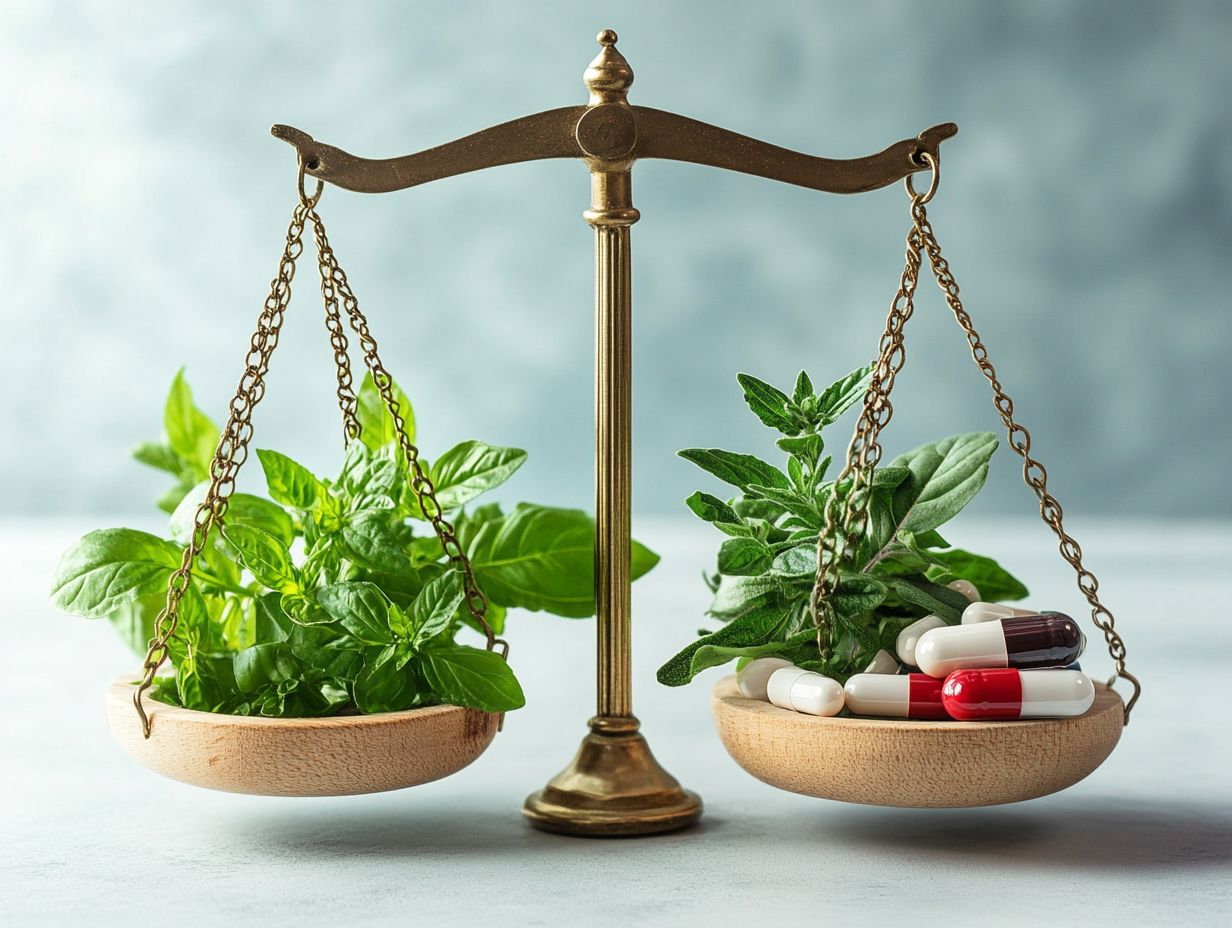
The key differences between herbs and pharmaceuticals include how they work, their side effects, and their availability all of which intricately shape their roles in health care.
While herbs often work through a complex interplay of natural compounds, pharmaceuticals generally boast well-defined chemical structures that determine their specific therapeutic functions.
Grasping these distinctions is essential for health practitioners as they evaluate treatment options for their patients.
Mode of Action, Side Effects, and Availability
The mode of action of herbs and pharmaceuticals differs significantly, influencing their side effects and market availability. You ll find that herbal products often exhibit more nuanced and multifaceted modes of action, while pharmaceuticals typically operate through specific mechanisms that can lead to predictable side effects and health risks.
Take turmeric, for example. Its primary active compound, curcumin, showcases remarkable anti-inflammatory properties through various pathways. This complexity may result in fewer side effects compared to standard non-steroidal anti-inflammatory drugs (NSAIDs), which are often used for pain relief but can lead to gastrointestinal issues.
This multifaceted nature makes herbal remedies quite appealing to many, although their availability can fluctuate depending on regulatory frameworks.
On the other hand, commonly prescribed pharmaceuticals like statins have a clear mechanism targeting cholesterol synthesis. While they can be effective, the associated risks such as muscle pain and liver damage prompt users to proceed with caution.
By understanding these differences, you can make informed choices about your health options.
When to Use Herbs vs. Pharmaceuticals
Choosing between herbs and pharmaceuticals requires careful thought. Key factors include the specific condition, patient preferences, and potential treatment outcomes.
This balance is vital for healthcare practitioners. They aim to provide holistic therapies that meet each patient’s unique needs.
Factors to Consider
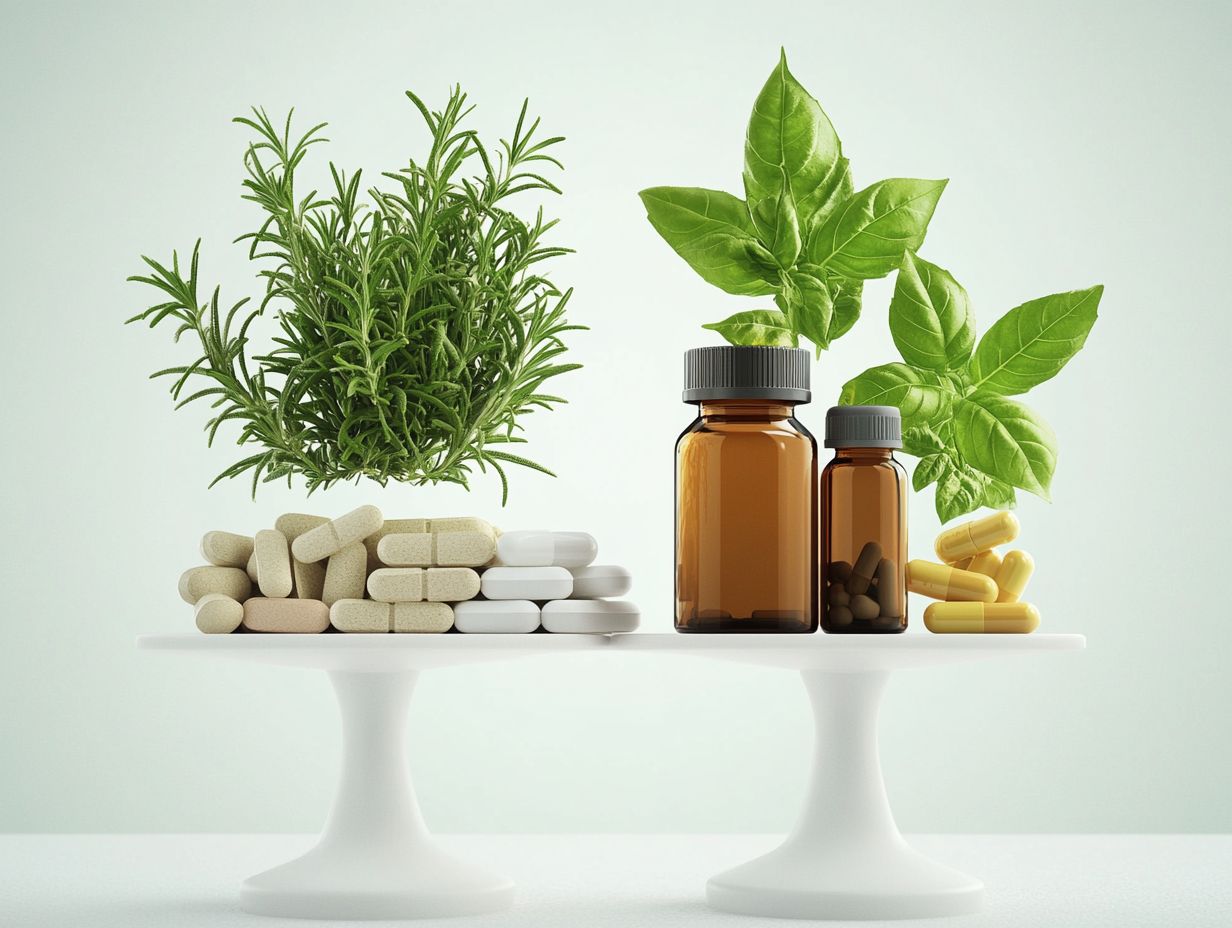
When deciding between herbs and pharmaceuticals, consider your health status, existing drug interactions, and reliable information about your condition. These factors ensure safety and effectiveness.
Your medical history is also critical. Past reactions to medications can greatly influence your options, so check your current medications for possible interactions with herbs.
Your specific health issues, like chronic illnesses or allergies, should guide your choice. This ensures your treatment aligns with your unique health needs.
Healthcare providers must gather thorough patient profiles. This creates a partnership where both you and your practitioner manage your health effectively.
Combining Herbs and Pharmaceuticals
Combining herbs with pharmaceuticals can enhance treatment benefits. However, it also brings potential interactions that need careful management.
Understanding drug interactions is crucial. This ensures both herbal and pharmaceutical treatments are safe and effective together.
Potential Interactions and Considerations
When combining herbal supplements with pharmaceuticals, potential interactions could pose significant health risks. Practitioners must carefully consider these before making treatment recommendations.
Take St. John s Wort; it can boost the metabolism of certain medications, like antidepressants and birth control pills. This can lessen their effectiveness.
Ginkgo biloba can increase bleeding risk when taken with blood thinners like warfarin.
Practitioners should emphasize that discussing all supplements is vital. They must pay attention to the patient’s overall health and any existing conditions.
Frequently Asked Questions
What is the difference between herbs and pharmaceuticals? Herbs are natural plant-based products used for medicinal purposes for centuries. Pharmaceuticals are synthetic drugs created in a laboratory.
Which is more effective: herbs or pharmaceuticals? Effectiveness depends on the individual’s condition and the specific substance used. Some herbs can be as effective as pharmaceuticals, while others may not be.
Are herbs safer than pharmaceuticals? Generally, herbs have fewer side effects than pharmaceuticals. However, consult with a healthcare professional before using any herb to ensure safety.
Can herbs and pharmaceuticals be used together? In some cases, they can provide added benefits. Always consult a healthcare professional before combining any herbal remedies with prescribed medications.
Are herbs and pharmaceuticals regulated differently? Yes, they are. Pharmaceuticals are strictly regulated by the FDA, while herbs, considered dietary supplements, are not subject to the same stringent regulations.
Which is more affordable: herbs or pharmaceuticals? Generally, herbs are more affordable. However, costs can vary based on the specific herb or drug and insurance coverage availability.

